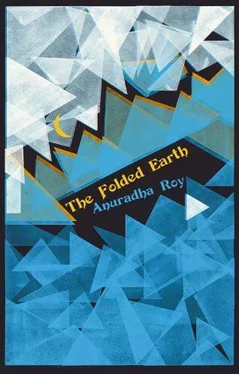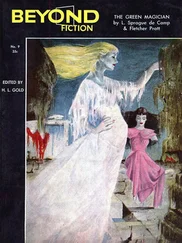I had to force myself not to barge into Veer’s working day, when he was immersed in his e-mails and his telephone, to suggest an expedition in his jeep. I waited for him to finish work and notice me. I waited every minute, when he was away, for him to come home.
Veer’s days were unpredictable. He worked from a room in the Light House. On some days he would lock himself away in it and, apart from the low hum of his voice on the telephone, there would be no sign of his presence. On other days he did no work at all and would sit in the veranda chatting with Diwan Sahib and Mr Qureshi, or go down to the bazaar to pick up his mail, stock up food for an approaching trek, and idle with people he met. The wool shop owner’s son, who was a budding politician, had become a friend of his, and there was a hotelier in the bazaar who would buttonhole Veer to try and persuade him to bring his clients to his hotel for a few days of relaxation after their treks. Veer played along, pronouncing it a great idea, but he never did bring his clients to Ranikhet. Instead, he picked them up from the railhead at Kathgodam, from where they drove directly to wherever they would begin the trek. I had only the foggiest understanding of his work and if I asked questions about routes and clients, he would answer with a smile, “Were you thinking of signing up? The next trek is to the Pindari glacier. Leeches and high-quality instant noodles guaranteed.”
Sometimes it worried me that he could disappear for weeks, when no-one had any way of telling, except in the most general sense, where he was. After one of his trips to Delhi in early July, when I went into his room for something or the other I found he had left his dirty clothes in a heap on the floor next to his bag. Out of a corner of my eye, I saw that one of the shirts was discoloured. I looked closer at it. The shirt’s blue denim was smeared all over with blood. The large stains looked fresh, still red, perhaps still damp. I did not want to touch the shirt to find out, but I was so startled I sat on a chair in his room and studied it from a safe distance to make sure I was not mistaking ink or paint for blood.
Veer had only returned that morning and was out in the veranda. He had changed into clean jeans and a loose grey T-shirt and sat on a low chair with a tea mug beside him. His feet were bare, he was whistling “Hey Jude” and staring at the screen of his laptop. When I went out and asked, “What’s all that blood on your shirt?” his face became such a mask of annoyance that I winced. Then his expression changed to one of amused tenderness. He gave me the half-smile that I found irresistible and said, “I have something to confess? Will you forgive me? I killed someone.” He looked around to see if there was anyone watching, then gave my cheek a quick pinch. “Look at your face: did you believe me? No, something else happened,” he said. “I overnighted in a hotel in Kaladhungi. Weird place: all night they kept shifting metal furniture across the floor of the room upstairs and walking up and down, knocking a walking stick or something like that on the floor above my head. Total silence in between and then the sounds again. The dead of night in the middle of jungle — I wondered if there were ghosts upstairs. Then someone began to sing songs — very beautifully — old folksongs — but that was the last straw, I couldn’t sleep at all. So I left at three in the morning. And you know that deep forest you have to drive through? You feel as if tigers will spring out of the bush any time. Some guys were standing there in the dark, in the middle of the road, with a torch and a dead man on the ground — they had put a tree branch across the road to make cars stop. I thought I was going to be robbed and killed, but they just wanted my help to take the man to hospital. He was unconscious it turned out, not dead. A huge Sardar, bleeding all over. I managed to spread a rug over the back seat, but in the process of hauling the man in, my shirt … musn’t give it to Gappu Dhobi, he’ll imagine the worst.” He paused and added, “As you did.”
I could not tell where the thought came from and I could not stop the words when I heard myself saying, “Where was it you rushed off when those helicopters were circling Ranikhet? Remember? You saw me on the road, but you didn’t stop. You didn’t come back for weeks. Nobody knew where you were.”
“What are you talking about?” Veer said. He seemed mystified by the question.
“I mean that time in May, when there were choppers in the sky all day, and you got a call on your phone and left without a word to anyone. What was that about?”
“Why do you sound so aggressive? I can’t tell you everything. That doesn’t mean I’m up to something fishy. What do you think I do anyway? Don’t you trust me?”
“You might trust me too, and tell me what that was all about. Most of the time I have no idea where you go, what you do, who you see — nothing.”
Until the moment I asked him, I had not even been aware that my suspicions about that morning were still gnawing at me. But now that I had begun, each thing I said stoked my rage.
Veer said nothing. When he clamped his lips shut the way he was doing now, and sucked in his cheeks, his face grew thinner still and grimmer, locked away. He looked at his computer screen, not at me, and said in a voice that was clipped and cold, “It was to help the Army with a search they needed to do. I know that area well, and I’ve done chopper searches before. Which is why they called me in.” He did not look up from the screen, and said nothing more.
I did not know what to say. I fiddled with a Banksia creeper by the door. I looked at a goat chewing on a young plant in the garden. It had rained that morning and now every leaf gleamed in the clear, washed light. Water plopped from a rainwater pipe into a tin drum. The grass had turned a tender green, but I knew it now hid black threads that bloated into blood-gorged leeches where they found warm skin. I could feel one on my ankle and bent to pluck it off. The scab would itch for days. Bijli appeared from somewhere and wagged his tail at us and gave a few short barks to suggest a walk. I patted him and said I would take him.
I turned to go, paused, trying to form the words for an apology, but could not. As I left the veranda my footsteps slowed and I came back. “Sorry,” I said, “it came out wrong.” I knew I still sounded grudging, and I was filled with regret for starting a quarrel and ruining a beautiful day, especially when he had just returned after a long journey.
I waited for him to say something forgiving, but he did not look up from his typing.
One afternoon soon after, I stood looking at the mountains, which had risen out of the monsoon sky. Clouds were piled high at their base so that they floated in mid-air, detached from everything earthly. Something in the quality of the light made the peaks appear translucent, as if the molten silver sky were visible through them. In the next few moments, I saw an extraordinary cloud form out of nothing, gather over the peaks, and grow larger and larger, spreading a black cloak as it travelled towards me, seemingly at the speed of a rocket. In no more than a minute it reached our hills and turned afternoon into twilight. Then the rain came sheeting down.
I ran inside, and as I shook my hair dry I wondered if I should interpret the cloud as an omen. I looked around for something to do to drive the thought away. I began to pull books out of the shelves and pile them on the floor. Silverfish scuttled out from between their pages. The books needed dusting and sunning. I pulled out shelf after shelf of books, possessed with energy and purpose. I would arrange them alphabetically — or maybe by genre. I would give away the thrillers I would never read again and all those books I had bought and kept thinking I would read the next month. Why did I have multiple copies of Man-eaters of Kumaon ? And where had this book on the arts and architecture of ancient Greece come from?
Читать дальше












